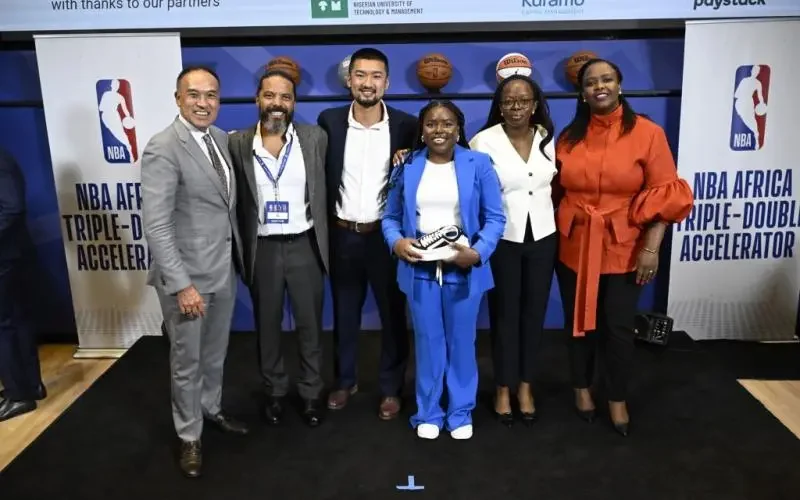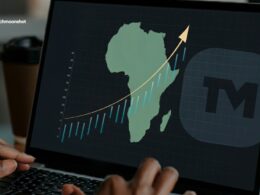For decades, Africa has been positioned as the recipient of innovation—a continent where global tech giants would eventually expand, where Silicon Valley solutions would be adapted, where we’d gratefully accept hand-me-down digital strategies. GITEX Nigeria 2025 shattered that narrative so completely that even the most skeptical observers are now scrambling to recalibrate their understanding of Africa’s tech trajectory.
The Numbers Don’t Lie, But They Don’t Tell the Whole Story
Global tech firms joined GITEX Nigeria 2025 to support Nigeria’s $1 trillion digital economy and AI innovation initiatives. That’s not a typo—$1 trillion. But here’s what the headlines miss: This isn’t about foreign validation anymore. This is about African solutions commanding global attention on their own terms.
When NASENI and AfriLabs launched the N250m InnovateNaija Challenge at the event, they weren’t just announcing funding. They were announcing a fundamental shift in how Nigeria views innovation—from scarcity to abundance, from importing solutions to exporting them.
The AI Revolution Has an African Accent
Artificial intelligence took center stage, not as a buzzword but as a roadmap for Africa’s digital future, with high-level panels on data sovereignty and infrastructure exploring how to build distributed regional data centers and harmonize governance frameworks across 54 nations.
This is the conversation that should terrify Silicon Valley. While global tech giants are still figuring out how to navigate Africa’s complexity, African innovators are building solutions that understand the continent’s nuances from the ground up. They’re not trying to force square pegs into round holes—they’re redesigning the entire game board.
Beyond the Hype: Real Change in Real Time
The most telling moment at GITEX Nigeria 2025 wasn’t any single announcement—it was watching Glovo partner with GITEX Nigeria for startup campus selection, with their General Manager emphasizing the partnership’s role in elevating Africa’s burgeoning tech ecosystem and positioning the continent as a vital hub of global innovation.
Notice the language shift? Africa isn’t a market to be penetrated; it’s a “vital hub of global innovation.” This isn’t corporate speak—it’s recognition of a new reality.
The Roadshow Revolution: Democracy in Action
Perhaps the most genius aspect of GITEX Nigeria 2025 was its approach to talent discovery. The GITEX Nigeria Regional Roadshows conducted a nationwide startup discovery tour led by NITDA through Nigeria’s six geopolitical zones from June to August 2025, traveling across the country to uncover, engage, and spotlight emerging innovations.
This wasn’t Lagos and Abuja talking to themselves—this was Nigeria talking to Nigeria. And what Nigeria said back was profound: Innovation doesn’t need permission, and it certainly doesn’t need to relocate to be relevant.
The VC Reality Check That Everyone Needed
The conversations around what Africa’s VCs really want in 2025 revealed founders who are less prone to chasing hype. Thank goodness. For too long, African startups have contorted themselves trying to fit Silicon Valley narratives that never made sense in African contexts.
GITEX Nigeria 2025 showcased a new generation of entrepreneurs who understand that solving African problems profitably is not just viable—it’s the pathway to building the next generation of global tech giants.
The Infrastructure Reality: Building Tomorrow Today
The focus on data sovereignty and building distributed regional data centers represents something profound: Africa is building infrastructure for Africans, by Africans. This isn’t about connecting to the global internet—this is about creating an African internet that happens to connect to the world.
The implications are staggering. When African data stays in Africa, when African solutions are built on African infrastructure, when African innovation serves African priorities first—that’s when real transformation happens.
The Uncomfortable Truth About Global Tech
Here’s what GITEX Nigeria 2025 really revealed: The global tech ecosystem needs Africa more than Africa needs it. Africa has the demographic dividend, the unmet demand, the resource abundance, and increasingly, the technological capability to build solutions that the world desperately needs.
Climate change? Africa’s been adapting to environmental challenges for millennia. Financial inclusion? African fintech companies are teaching the world how to serve the underserved. Mobile-first innovation? Africa wrote the playbook.
Beyond the Event: The Movement
GITEX Nigeria 2025 wasn’t just successful because of who showed up—it was transformative because of what it represented. The event concluded with a grand closing ceremony celebrating the winners of the Supernova Challenge, putting the final nominees in the spotlight along with their innovations to grow Africa’s technology ecosystem.
But the real winners weren’t just the companies that took home prizes. The real winners were every young African who watched and thought, “I could do that.” Every investor who realized they’d been looking in the wrong places. Every policymaker who understands that supporting local innovation isn’t charity—it’s economic strategy.
The Lagos Effect: Why Geography Still Matters in Digital Times
The choice to host GITEX Nigeria 2025 across both Lagos and Abuja wasn’t just logistical—it was strategic genius. Lagos, with its Eko Hotel hosting the Tech Expo component, brought the commercial firepower and startup energy. Abuja delivered the policy depth and government backing. Together, they created something unprecedented: a tech event that seamlessly bridged Nigeria’s commercial capital with its political center.
The Lagos effect was immediately visible. Over 3,000 professionals descended on the commercial capital for a two-day showcase that featured cutting-edge demonstrations in AI, fintech, IoT, and cybersecurity. But Lagos offered more than just venue space—it provided context. This is the city where Nigerian fintech was born, where Nollywood meets technology, where the hustle economy transforms into the innovation economy.
Making GITEX Nigeria 2025 the first-ever major tech event to span two powerhouse cities sent a clear message: Nigerian innovation isn’t confined to any single geography. It flows between the streets of Lagos and the corridors of Abuja, between the venture capital of Victoria Island and the policy makers of the Federal Capital Territory.
The dual-city approach also revealed something profound about Nigeria’s tech maturity. This wasn’t a Lagos event seeking Abuja’s permission, or an Abuja initiative trying to impose itself on Lagos. This was Nigeria, unified in its digital ambition, leveraging every advantage it possesses.
The Scale Revolution: When Expectations Meet Reality
The maiden edition, themed “Forging the Rise of Digital Nigeria,” exceeded expectations with over 20,000 participants, more than 1,000 startups, and over 100 investors—numbers that would make even Silicon Valley events envious. But the real revolution wasn’t in the headcount; it was in the mindset shift these numbers represented.
For years, African tech events struggled with what we might call “colonial cringe”—the persistent worry about whether global players would show up, whether the content would be sophisticated enough, and whether the deals would be significant enough. GITEX Nigeria 2025 obliterated those insecurities by simply delivering at world-class levels.
When global giants like IBM, MTN, and Cisco didn’t just attend but actively participated in showcasing solutions for African challenges, it validated what many had suspected but few had dared to say: Africa isn’t just ready for prime time—Africa is prime time.
The Challenge Ahead: Sustaining the Momentum
The test of GITEX Nigeria 2025’s true impact won’t be measured in the immediate aftermath—it’ll be measured in what happens next. Will the partnerships announced survive the return to business as usual? Will the funding commitments translate into actual capital deployment? Will the policy discussions become actual policy changes?
Early signs are encouraging. GITEX is establishing its presence in West Africa under the banner of KAOUN International in partnership with Nigeria, suggesting this isn’t a one-off event but the beginning of sustained engagement.
The Verdict: Africa’s Tech Coming-of-Age
GITEX Nigeria 2025 will be remembered as the moment Africa’s tech ecosystem reached maturity—not because it finally got global recognition, but because it stopped needing it. The confidence, the sophistication, the sheer audacity of the solutions showcased weren’t seeking validation; they were demanding attention.
And they got it.
The next time someone asks whether Africa is ready for the fourth industrial revolution, point them to GITEX Nigeria 2025. The question isn’t whether Africa is ready—it’s whether the world is ready for what Africa is building.
Because based on what we saw in Lagos and Abuja, the future isn’t coming to Africa. The future is coming from Africa.












